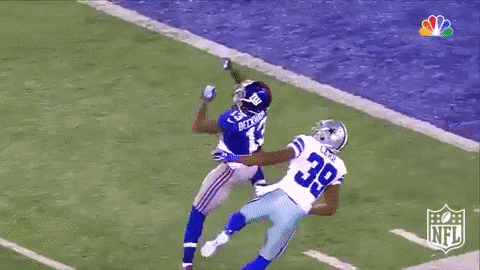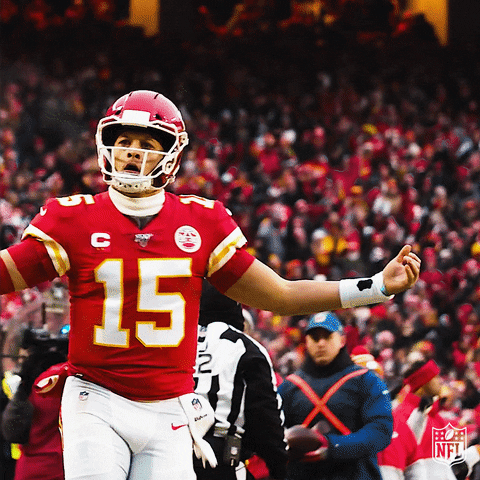Fantasy Football 101: Explain It To Me Like I'm 5
A quick explainer about football, fantasy football, and the space between for people who didn't grow up around the sport.
Preface
I recently had a meeting with my team members for my “regular” job (I put regular in quotes because working at a Web3 startup might not be your typical regular) where I began to introduce the concept of Fantasy Football. American Football that is. Many of our team members come from around the globe and bring a more worldly outlook on sports that made the conversation far more lively than expected.
In fact, of the handful of leagues I have founded and/or manage to this day, the league I am helping found for Blockzero Labs has the potential to be one of the most diverse and fun groups of people that I can imagine sharing this crazy journey with.
So I started writing this article, partly to help order my own thoughts, but mainly to help guide any team or community member reading this later who wants a (hopefully) quick primer on Fantasy Football.
Think of this as step one, with other steps to come later as we continue to dig deeper.
Let’s start with the basics.
American Football - The Sport
American Football, not to be confused with the rest of the world’s Football (Soccer), is a sport primarily played in the United States, but is growing in popularity elsewhere in the world.
From now on, if I say “Football” I will be referring to American Football, just to be clear.
Football is an 11-on-11 sport consisting of three major phases, Offense, Defense, and Special Teams. When teams are on offense, they control the ball and attempt to score. When teams are on defense, they attempt to prevent the other team from scoring or take the ball away (this is called a turnover). Special Teams is a middle ground where “possession” of the ball transitions from one team to the other.
The game is played for 4 quarters, with continuous series of set-plays constituting the action, rather than the continual play seen in other sports.
Scoring mostly comes from either Touchdowns, worth 6 points, or Field Goals, worth 3. Touchdowns are scored by a player with the ball reaching the opposing team’s end-zone. Field goals are scored when the ball is kicked through the opposing team’s goalposts.
I am vastly oversimplifying here, but these key bits and pieces can help form a baseline for watching a few games and getting the hang of the sport.
They also serve as a baseline for why we are really here, which is Fantasy Football.
Yes, But what is Fantasy Football?
Anyone seen the cult-classic film Idiocracy? First, go watch it. If you don’t have time, I won’t spoil it if you, but there is a scene where a couple characters try and explain what Electrolytes are and why they are an important factor in crop irrigation. Ok minor spoiler alert - they are in no way something you should consider as you water crops.
Anyway, explaining what Fantasy Football is and why it is fun sometimes feels about as circular as the electrolytes discussion.
The twist here is that Fantasy Football is loads of fun and has almost single-handedly saved the viewership of Football the actual sport - while watering crops with electrolytes didn’t make sense because it shouldn’t. It was a bad, bad idea.
The explanations feel similar though because Fantasy Football is a game about a game. Or a game on top of a game, depending on your perspective. The two are related but different. One depends on the other but also assigned value to different things. The kicker is that you as a Fantasy Football player only truly need a passing interest in Football the sport to cultivate a love for Fantasy Football the game.
Weird huh?
Let’s Play
Time to get down to business. You have made it this far, you deserve the primer you were promised. How do you actually play this game?
You, the team “owner”, do your best to serve as your team’s General Manager for the season to come. You are in charge of drafting (selecting) your team at the beginning of the season, cutting players you no longer want, adding players you do, and trading for players that you want but who are on other teams.
Your team consists of a variety of positions, mostly consistent with the Offense position group we mentioned earlier. Defense and Special Teams are often lumped together into one single unit - like the Seattle Seahawks Defense/Special Teams, DST for short.
Each week during the football season you will set a roster of players, your lineup, and go up against another team in your league doing the same thing.
Then actual football games are played, and the players in your lineup accrue points for what they did out on the field. Things like touchdowns, field goals, yards (we have yet to cover these), and receptions (these too) build toward your players’ point totals each week.
Score more than your opponent and you win the week. Win enough weeks and you make playoffs. Win all through playoffs and you take home the coveted championship and a year’s worth of bragging rights against your friends, and in this case, coworkers, and the broader discord community.
Positional Breakdown
If we boil everything down, you only care about making the strongest lineup possible week-in, week-out. This lineup will consist of a few key positions, which I’ll break down for you below. Individual leagues will have different roster requirements, sometimes requiring more or less of the positions below, but today we will just focus on what is most common.
Quarterback - QB
The quarterback is the person calling the plays for the offense. On any given play he either throws the ball, hands it off to a teammate (usually the running back), or runs it himself. For a quarterback, both passing and running stats earn points.
Leagues typically only start one QB in a week, making this a second-tier position in terms of relative value. Don’t blame me, blame the laws of supply and demand.
Running Back - RB
The running back is the key factor in, you guessed it, running plays where the quarterback hands the ball off. They can also catch the ball in passing plays, which can earn points as well. Running backs tend to form the backbone of any strong team.
Word of advice for new players, you can almost never have enough running backs. They get hurt, so having backups ready to go can save your season. Trust me, don’t be the guy (or girl) who drafts two running backs and calls it a day.
Leagues usually start two running backs per week, with another slot that can be taken up by a RB/WR/TE.
Wide Receiver - WR
Wide receivers are your other key position group, apart from running backs. They are your primary ball catchers, earning most of their points when the quarterback passes them the ball.
To a slightly lesser degree than running back, you will want to ensure that your roster is not lacking in wide receiver talent.
Leagues usually start two wide receivers per week, with another slot that can be taken up by a RB/WR/TE.
In terms of value, wide receiver position might come in slightly behind running back, but that is heavily dependent upon the scoring format, which we won’t get into here. For now, just think of them as equally important.
Tight End - TE
Tight ends are similar to wide receivers in many ways but are not as commonly targeted in the passing game. This causes them to score fewer points, and for the position group to be generally less valuable than RB or WR.
Of course, there are always exceptions, and a few star tight ends are always present in any given year.
Teams typically start one TE per week, and will most often not use a TE in the RB/WR/TE slot, even though it is allowed.
Tight ends, like quarterbacks, belong in your second-priority tier when draft day rolls around.
Defense & Special Teams - DST
As I mentioned before, typically the Defense and Special Teams are lumped together for each team. They score points for actions that limit the opposing team’s scoring, or when they take the ball away and score themselves.
You will carry one, maybe two of these on your roster at any given point in the season, but having a “good” one is far less important than the positions listed above.
Consider this your third priority, with only one of these factoring into your lineup per week.
Kicker - K
Last, and unfortunately least, there is the kicker position. Kickers, well, kick the ball through the goalposts for field goals and for extra points after touchdowns. These are their only ways of scoring, with longer field goals being worth progressively more points.
Kickers are one of the least valuable positions to focus on, not because they don’t score points, they do, but because those points are largely random and there isn’t a lot of difference between the total points of one kicker at season’s end and the total points of another.
You also only start one kicker per week, making the options fairly abundant.
In fact, many people add and drop a kicker each week, depending on what teams are expected to score more points. The moral of the story, don’t get too attached to your kicker. Some leagues have dropped the position entirely in favor of adding another slot for a different position.
If I wasn’t abundantly clear, the kicker position is your last priority.
Basic Strategy
Armed with the outline of the major positions in fantasy football, you can begin to think about composing a lineup. This is initially done through a Draft where the league systematically picks from the available players until everyone’s roster is full.
I am sure I will write a more robust draft strategy article later, but there are a couple key points you should know now.
Load up on Running Backs and Wide Receivers - these are your two most important assets. Everything else is secondary.
Quarterback and Tight End are your second priority - Save for some major stars, you should consider addressing these position groups after you are content with your strength in step 1. What constitutes contentment is where the magic happens for each manager.
Defense and Kicker can be left until the very end of your draft. Seriously. Don’t even think about it before the final two rounds. You can thank me later.
That’s it, really. We will talk more about what players to choose and how to use rankings and whatnot in later articles, but this should give you plenty to digest for the moment.
Just like that, we made it! You now have a passing understanding of the sport of football, as well as the game of fantasy football, and how the two relate. I’m sure you are left with questions though. I know I was when I first started out. Feel free to post them in the comments below, along with any concepts you would like to see expanded upon in future articles.
Starting out is hard, but I am here to help you compete and have fun! Thank you for reading 🙏
And if what I am writing resonates with you, please share it with a friend and consider following me on Twitter. 🏈








